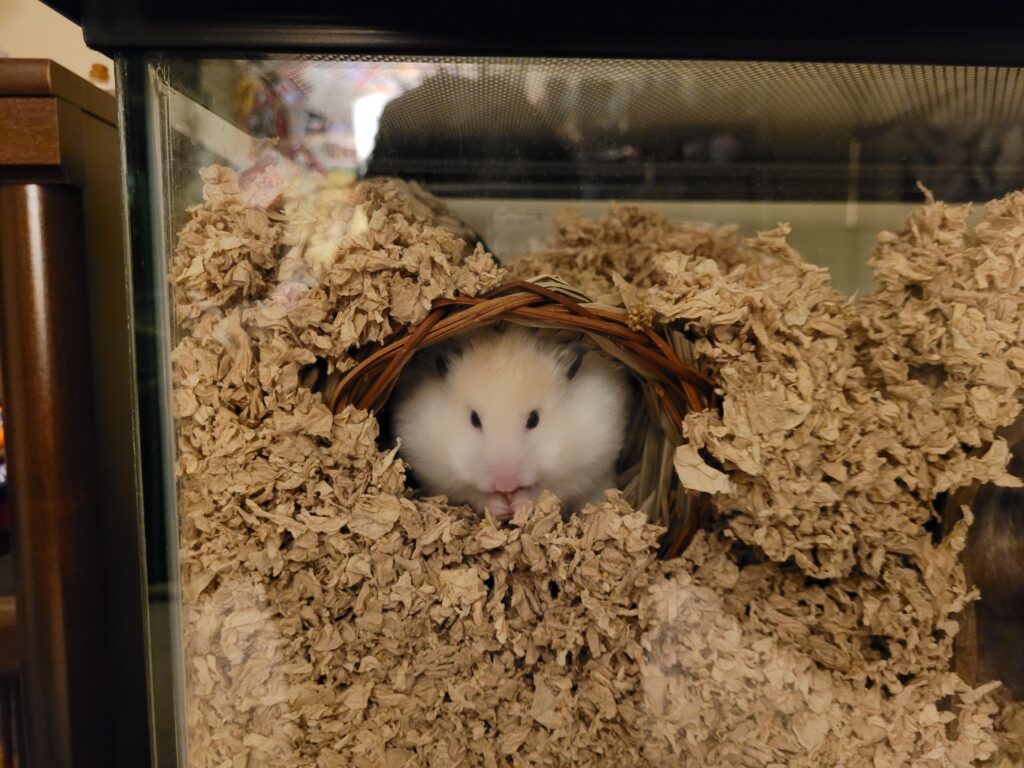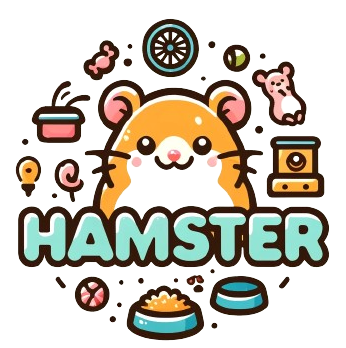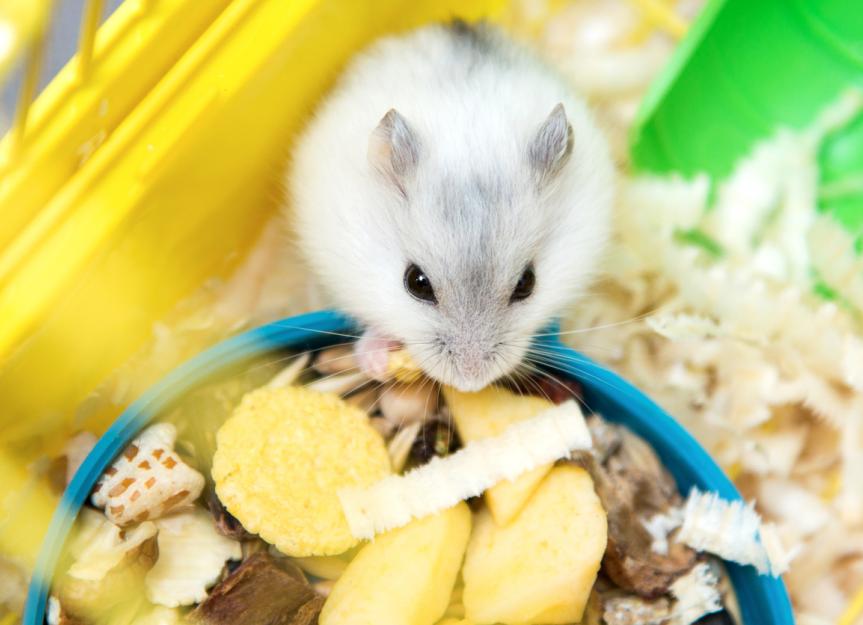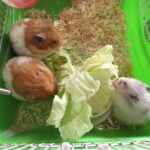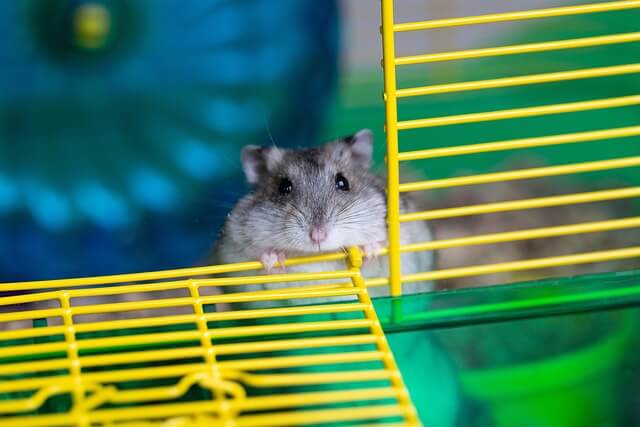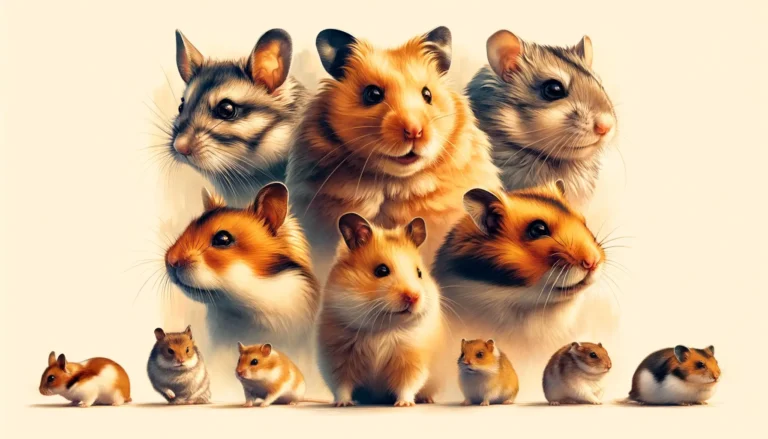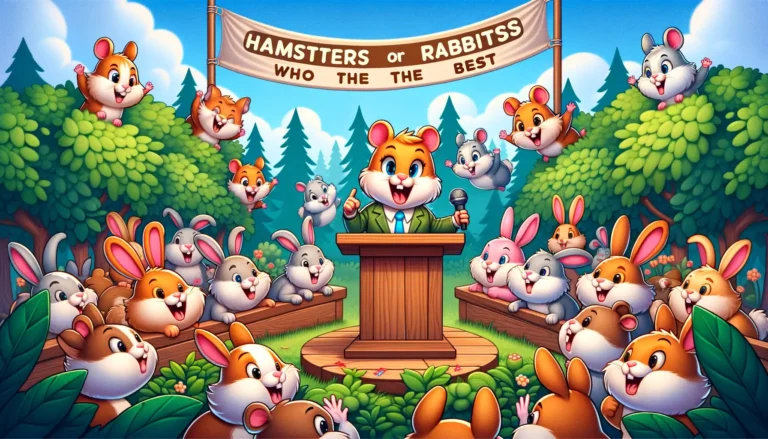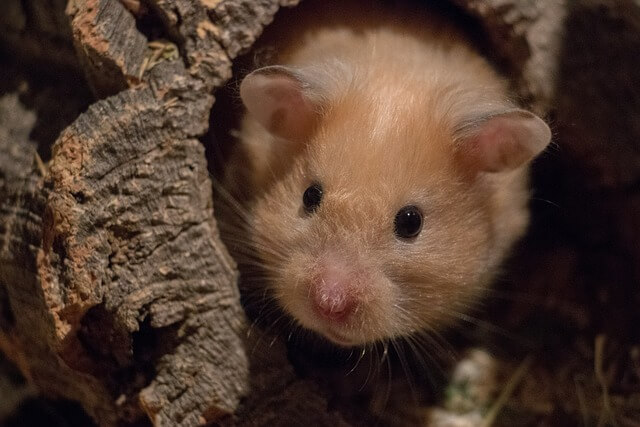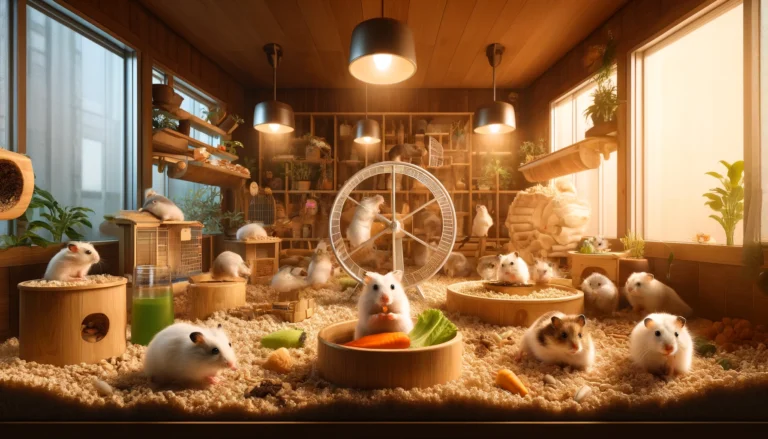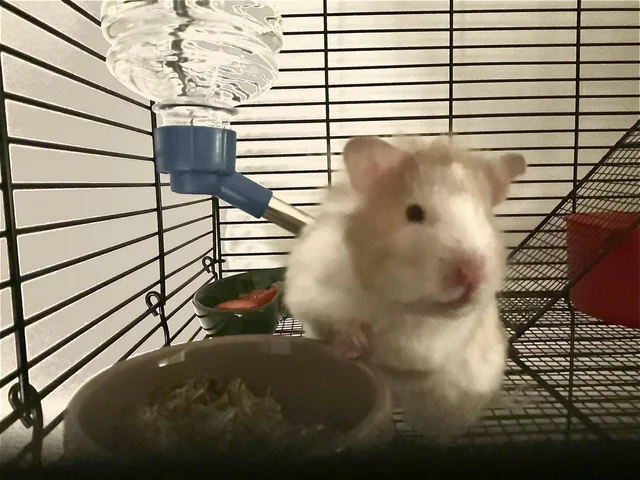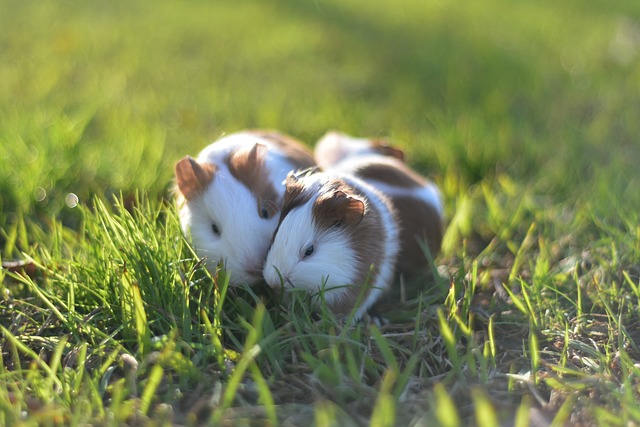What Is The Best Food For Hamsters – Hamsters.pk
Essential Components of a Balanced Hamster Diet
Providing your hamster with a balanced diet is crucial for their overall health and well-being. A well-rounded diet should consist of a variety of nutrients, including proteins, carbohydrates, fats, vitamins, and minerals. In this article, we’ll discuss the essential components of a balanced hamster diet to ensure your furry friend stays healthy and happy.
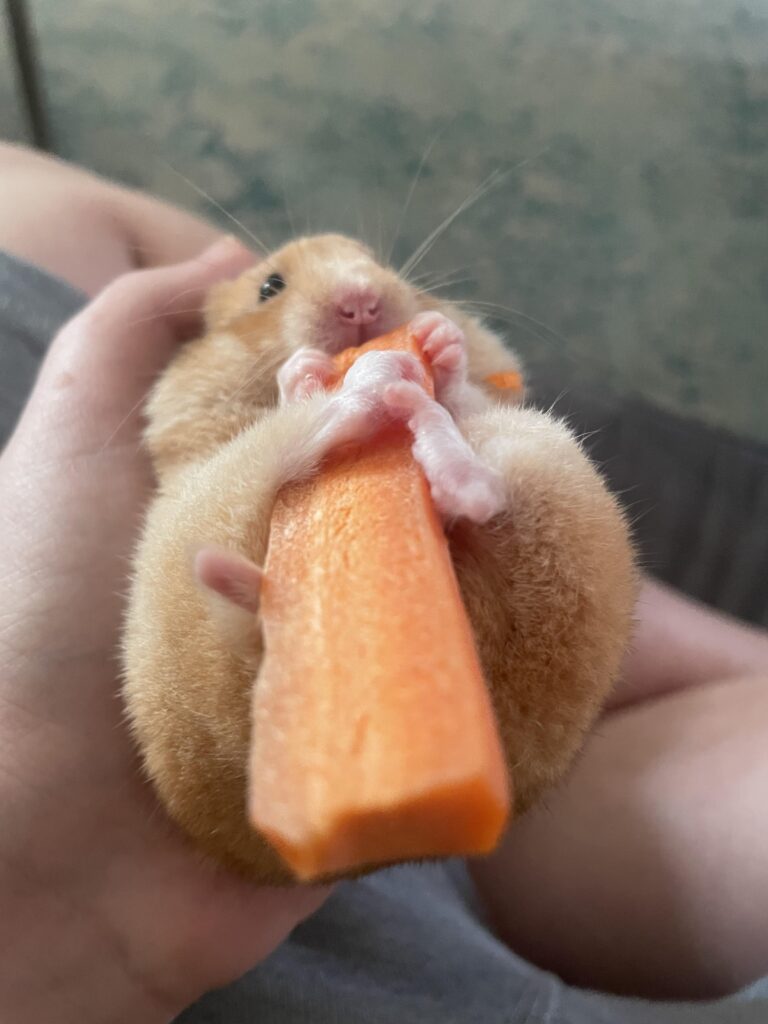
Commercial Hamster Food
The foundation of a balanced hamster diet is a high-quality commercial hamster food. Look for a pellet-based food that is specifically formulated for hamsters. These foods are designed to provide all the necessary nutrients in the right proportions. Avoid seed-based diets, as hamsters may selectively eat their favorite seeds, leading to an unbalanced diet.
Fresh Vegetables and Fruits
In addition to commercial food, hamsters benefit from small amounts of fresh vegetables and fruits. These foods provide essential vitamins, minerals, and fiber. Some safe options include:
- Leafy greens like lettuce, spinach, and kale
- Carrots
- Cucumbers
- Bell peppers
- Apples (without seeds)
- Berries (in moderation)
Remember to introduce new foods gradually and in small quantities to avoid digestive issues.
Protein Sources
Hamsters require adequate protein for growth, muscle maintenance, and overall health. While commercial hamster food usually contains enough protein, you can occasionally offer small amounts of cooked egg, mealworms, or crickets as treats.
Whole Grains
Whole grains provide complex carbohydrates, which are an important energy source for hamsters. Some suitable options include:
- Brown rice
- Whole wheat bread (in moderation)
- Oats
- Barley
Water
Fresh, clean water should always be available to your hamster. Change the water daily and clean the water bottle or bowl regularly to prevent bacterial growth.
Things to Avoid
Certain foods can be harmful to hamsters and should be avoided. These include:
- Junk food (chips, candy, etc.)
- Chocolate
- Onions and garlic
- Raw beans
- Citrus fruits (too acidic)
- Sugary treats (can lead to obesity and diabetes)
By providing your hamster with a balanced diet consisting of high-quality commercial food, fresh vegetables and fruits, protein sources, whole grains, and clean water, you’ll ensure that your pet remains healthy and thrives. Always consult with a veterinarian if you have any concerns about your hamster’s diet or health.
Top Commercial Hamster Food Brands and Their Benefits
When it comes to providing your hamster with a balanced diet, choosing the right commercial food is essential. With numerous brands available in the market, it can be challenging to determine which one is the best for your furry friend. In this article, we’ll explore some of the top commercial hamster food brands and their benefits.
Oxbow Essentials Hamster Food
Oxbow Essentials Hamster Food is a popular choice among hamster owners. This brand offers a balanced blend of pellets, which are fortified with vitamins and minerals. The food is made with high-quality ingredients, including:
- Timothy hay (a good source of fiber)
- Brown rice (for complex carbohydrates)
- Oats (for protein and fiber)
- Soybean meal (for protein)
Oxbow Essentials is free from artificial colors, flavors, and preservatives, making it a healthy option for your hamster.
Kaytee Forti-Diet Pro Health Hamster Food
Kaytee Forti-Diet Pro Health Hamster Food is another excellent choice. This brand provides a variety of natural ingredients that support your hamster’s overall health. The food contains:
- Prebiotics and probiotics (for digestive health)
- Antioxidants (to support immune system)
- Omega-3 fatty acids (for heart and brain health)
- Natural ingredients (like timothy hay, oats, and flaxseed)
Kaytee Forti-Diet is formulated to encourage natural foraging behaviors, keeping your hamster mentally stimulated.
Higgins Sunburst Gourmet Blend Hamster Food
Higgins Sunburst Gourmet Blend Hamster Food is a nutrient-rich option that includes a mix of fruits, vegetables, and seeds. This brand offers a diverse blend of ingredients, such as:
- Dried fruits (like papaya and pineapple)
- Vegetables (like carrots and peas)
- Pumpkin seeds (for protein and healthy fats)
- Whole grains (like oats and barley)
Higgins Sunburst provides a variety of flavors and textures, making mealtime more enjoyable for your hamster.
Mazuri Hamster Diet
Mazuri Hamster Diet is a scientifically formulated food that meets the specific nutritional needs of hamsters. This brand offers a balanced blend of proteins, carbohydrates, and fats, along with essential vitamins and minerals. The food contains:
- Soybean meal (for protein)
- Ground corn (for carbohydrates)
- Wheat germ (for fiber and nutrients)
- Dried yeast (for B-vitamins and protein)
Mazuri Hamster Diet is designed to promote healthy growth, reproduction, and overall well-being.
When choosing a commercial hamster food, always opt for a high-quality, well-balanced brand that meets your pet’s nutritional needs. Avoid brands with excessive amounts of sugary treats or artificial ingredients. By selecting one of the top brands mentioned above and supplementing with fresh vegetables and fruits, you’ll ensure your hamster receives a balanced and healthy diet.
Healthy Treats and Supplements for Hamsters
While a balanced commercial diet should form the foundation of your hamster’s nutrition, offering healthy treats and supplements can provide variety and additional benefits. However, it’s crucial to choose treats and supplements wisely to ensure they contribute to your hamster’s well-being without causing any harm. In this article, we’ll discuss some healthy treats and supplements for hamsters.
Fresh Vegetables
Fresh vegetables are excellent treats for hamsters, providing essential vitamins, minerals, and fiber. Some safe and healthy options include:
- Leafy greens: Lettuce, spinach, kale, and dandelion greens
- Carrots: Rich in beta-carotene for eye health
- Cucumber: High water content for hydration
- Bell peppers: Vitamin C for immune support
- Broccoli: Fiber and antioxidants for overall health
Introduce new vegetables gradually and in small amounts to avoid digestive issues.
Fruits
Fruits can be offered as occasional treats, as they contain natural sugars. Some hamster-safe fruits include:
- Apples: Remove seeds, as they contain harmful compounds
- Berries: Strawberries, blueberries, and raspberries in moderation
- Melon: Small pieces of watermelon, cantaloupe, or honeydew
- Pear: High in fiber and vitamin C
Remember to limit fruit intake due to their sugar content.
Protein Treats
Hamsters require protein for growth and muscle maintenance. Some healthy protein treats include:
- Mealworms: Dried or live, they are high in protein
- Crickets: Another protein-rich insect treat
- Cooked egg: Offer small pieces of hard-boiled egg occasionally
- Plain tofu: A small cube of tofu can provide a protein boost
Avoid fatty meats or processed proteins, as they can lead to obesity and other health issues.
Whole Grain Treats
Whole grains provide complex carbohydrates and fiber. Some healthy whole-grain treats include:
- Brown rice: Cooked and cooled
- Whole wheat bread: Small pieces as occasional treats
- Unsweetened whole-grain cereal: Like Cheerios or bran flakes
- Oats: Uncooked or slightly cooked
Avoid sugary or processed grains, as they offer little nutritional value.
Chew Treats
Chew treats help keep your hamster’s teeth trimmed and promote dental health. Some safe options include:
- Untreated wood chews: Made from safe wood like apple or willow
- Loofah chews: Natural and safe for chewing
- Coconut shell: A hard, durable chew toy
- Unbleached hay cubes: Timothy or alfalfa hay cubes
Avoid treated wood or plastic chews that may contain harmful chemicals.
Supplements
In most cases, a balanced diet and healthy treats provide all the necessary nutrients for hamsters. However, some supplements can be beneficial:
- Vitamin C: If not getting enough from fresh foods
- Probiotics: To support digestive health
- Omega-3 fatty acids: For heart and brain health
Consult with a veterinarian before adding any supplements to your hamster’s diet.
By offering a variety of healthy treats and supplements in moderation, you can enhance your hamster’s diet and provide essential nutrients. Always monitor your pet’s response to new foods and adjust accordingly. Remember, treats should make up only a small portion of your hamster’s overall diet, with the main focus being on a high-quality commercial food.
Foods to Avoid Feeding Your Hamster
As a responsible hamster owner, it’s essential to be aware of the foods that can be harmful or even toxic to your furry friend. While hamsters can enjoy a variety of healthy treats and fresh produce, certain foods should be avoided to prevent health issues. In this article, we’ll discuss the foods you should never feed your hamster.
Junk Food and Processed Snacks
Junk food and processed snacks designed for human consumption should never be given to hamsters. These foods are often high in sugar, salt, and unhealthy fats, which can lead to obesity, diabetes, and other health problems. Examples of junk food to avoid include:
- Chips: Potato chips, tortilla chips, and other fried snacks
- Candy: Chocolate, gummies, and other sugary treats
- Cookies and cakes: High in sugar and unhealthy fats
- Pretzels: High in salt and carbohydrates
Stick to hamster-specific treats and healthy fresh foods instead.
Citrus Fruits
While many fruits are safe for hamsters, citrus fruits should be avoided. Citrus fruits, such as oranges, lemons, limes, and grapefruits, are highly acidic and can cause digestive issues in hamsters. The high acidity can lead to stomach upset, diarrhea, and other gastrointestinal problems.
Onions and Garlic
Onions and garlic, whether raw or cooked, should never be fed to hamsters. These foods contain compounds called thiosulphates, which can cause anemia and damage red blood cells in hamsters. Even small amounts of onion or garlic can be harmful, so it’s best to avoid them entirely.
Raw Beans
Raw beans, such as kidney beans, black beans, and lima beans, contain harmful toxins that can be dangerous for hamsters. These toxins can interfere with digestion and cause serious health issues. While cooked beans are generally safe in small amounts, it’s best to avoid feeding beans to your hamster altogether.
Alcohol and Caffeine
Alcohol and caffeine are toxic to hamsters and should never be given to them under any circumstances. Even small amounts of alcohol can cause liver damage, respiratory failure, and death in hamsters. Caffeine, found in coffee, tea, and soft drinks, can cause hyperactivity, heart palpitations, and other health issues.
Rhubarb and Tomato Leaves
Rhubarb leaves and tomato leaves contain oxalates and other toxins that can be harmful to hamsters. These compounds can cause digestive issues, kidney damage, and other health problems. While the fruits of these plants (rhubarb stalks and tomatoes) are safe in moderation, the leaves should always be avoided.
Sugary Treats and Syrups
Sugary treats, such as honey, molasses, and corn syrup, should be avoided in your hamster’s diet. These high-sugar foods can lead to obesity, diabetes, and dental problems. Hamsters have a natural preference for sweet tastes, but it’s important to limit their sugar intake to maintain their health.
Salty Foods
Hamsters have a low tolerance for salt, and consuming too much can lead to dehydration and other health issues. Avoid feeding your hamster salty foods, such as salted nuts, pretzels, and processed meats. Stick to low-sodium or salt-free options when choosing treats for your hamster.
By avoiding these harmful foods and focusing on a balanced diet of high-quality hamster food, fresh vegetables, and safe treats, you can help ensure your hamster stays healthy and happy. If you have any doubts about a specific food, it’s always best to consult with a veterinarian specializing in small animals before introducing it to your hamster’s diet.
